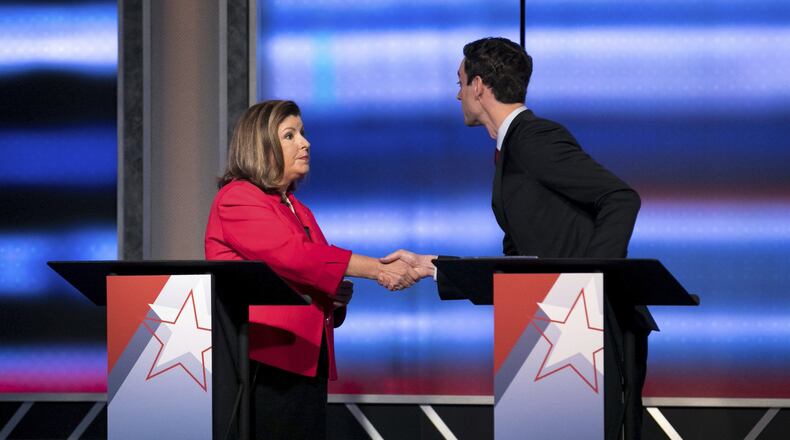The special election to fill a closely contested Georgia congressional seat has broken a campaign cash record. With about $36 million spent, it is now the most expensive race for Congress the country has ever seen.
The seat, left vacant when President Donald Trump named Tom Price as secretary of health and human services, had been a solid Republican seat for years. But Democrats think they may be in striking distance of a win.
In a feisty debate Tuesday, Republican Karen Handel and Democrat Jon Ossoff took shots at each other for relying on money from outside Georgia. We dug into the numbers behind their claims. We assessed what was known on the day of the debate. (New filings after the debate show Ossoff has raised $23 million overall, with a whopping $15 million in the past two months. Handel had yet to file.)
We found that their jabs can be accurate. It boils down to this: Ossoff benefited from hundreds of thousands of individual small donors from outside the state. Handel benefited from political action committees aligned with Republicans, some fueled by large anonymous donors.
Ossoff: “One of the things I’m proud of is that my campaign is funded by small-dollar, grassroots fundraising. The average contribution to my campaign is less than $50. And that’s from folks across the country, but also far more Georgians than have contributed to my opponent’s campaign.”
Ossoff has reported more donors in Georgia than Handel, about three times as many.
As for his claim that the average donation is less than $50, federal campaign reporting rules make it impossible to fully verify this. People who give less than $200 can remain anonymous.
"You will ever be able to know definitely how many people have donated to a particular campaign," said Dave Levinthal at the Center for Public Integrity, a Washington-based group that studies money in politics. "If you make a donation of $50 or $100, the campaign doesn't have to itemize. We don't know how many donors there are or where they live."
Money from small donors account for about two-thirds of all of Ossoff’s donations. Making matters more complicated, in April alone, he raised $6.9 million through the Democratic online fundraising platform, Act Blue, which bundles small individual contributions.
Sarah Bryner, research director at another nonpartisan group, the Center for Responsive Politics, said Act Blue is famous for collecting tiny donations.
“You get lot of people and lot of small dollar amounts,” Bryner said.
Handel: “My opponent has more donors and more dollars coming from outside the state of Georgia. They are coming from Nancy Pelosi, California, New York, Massachusetts.”
Handel has a point that Ossoff is getting more support from individuals outside of Georgia. We still face the hurdle of limited details, but from what we can see, Ossoff’s donors from California, New York and Massachusetts outnumber those from Georgia by about two to one, and the dollars raised show an even larger gap.
Politico reported that just 5 percent of Ossoff's money from Act Blue in April came from Peach State voters. The Ossoff campaign told The Atlanta Journal Constitution in April that 95 percent of his donors came from outside of Georgia.
About the Author
The Latest
Featured


